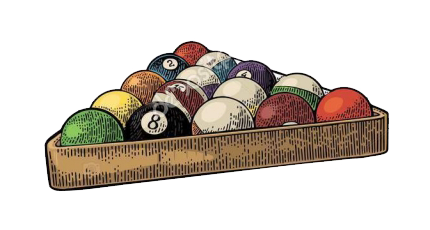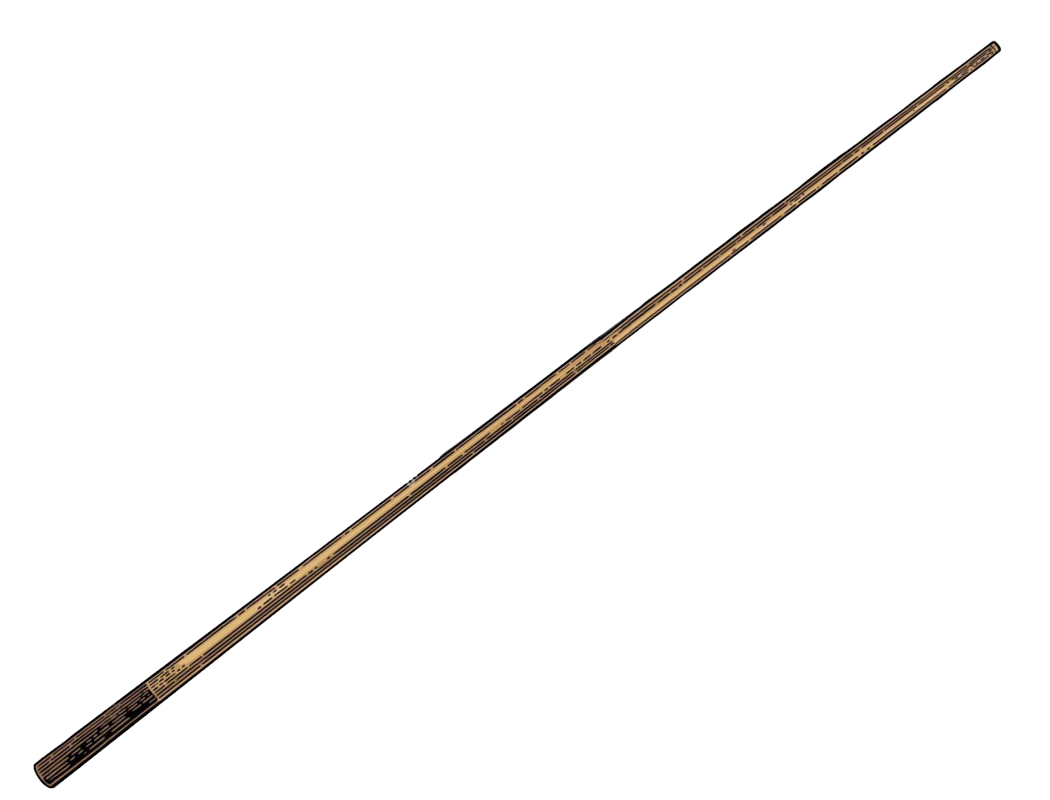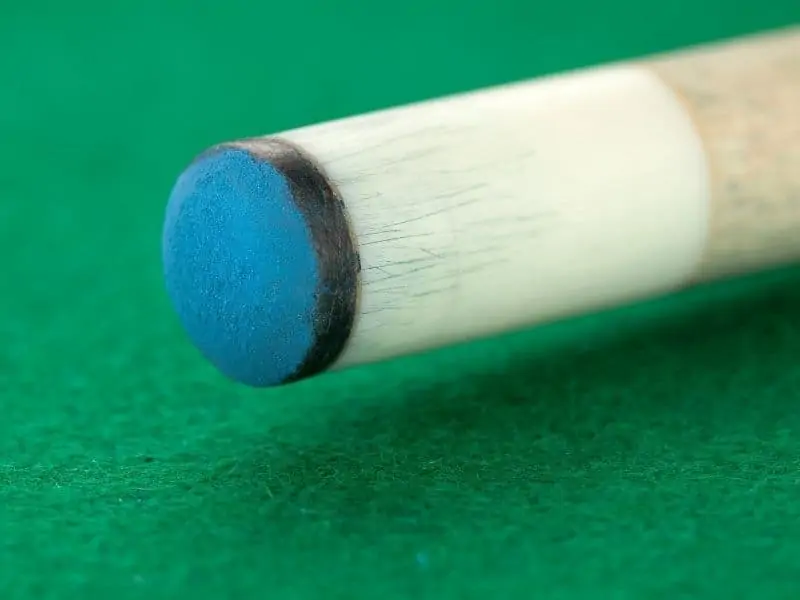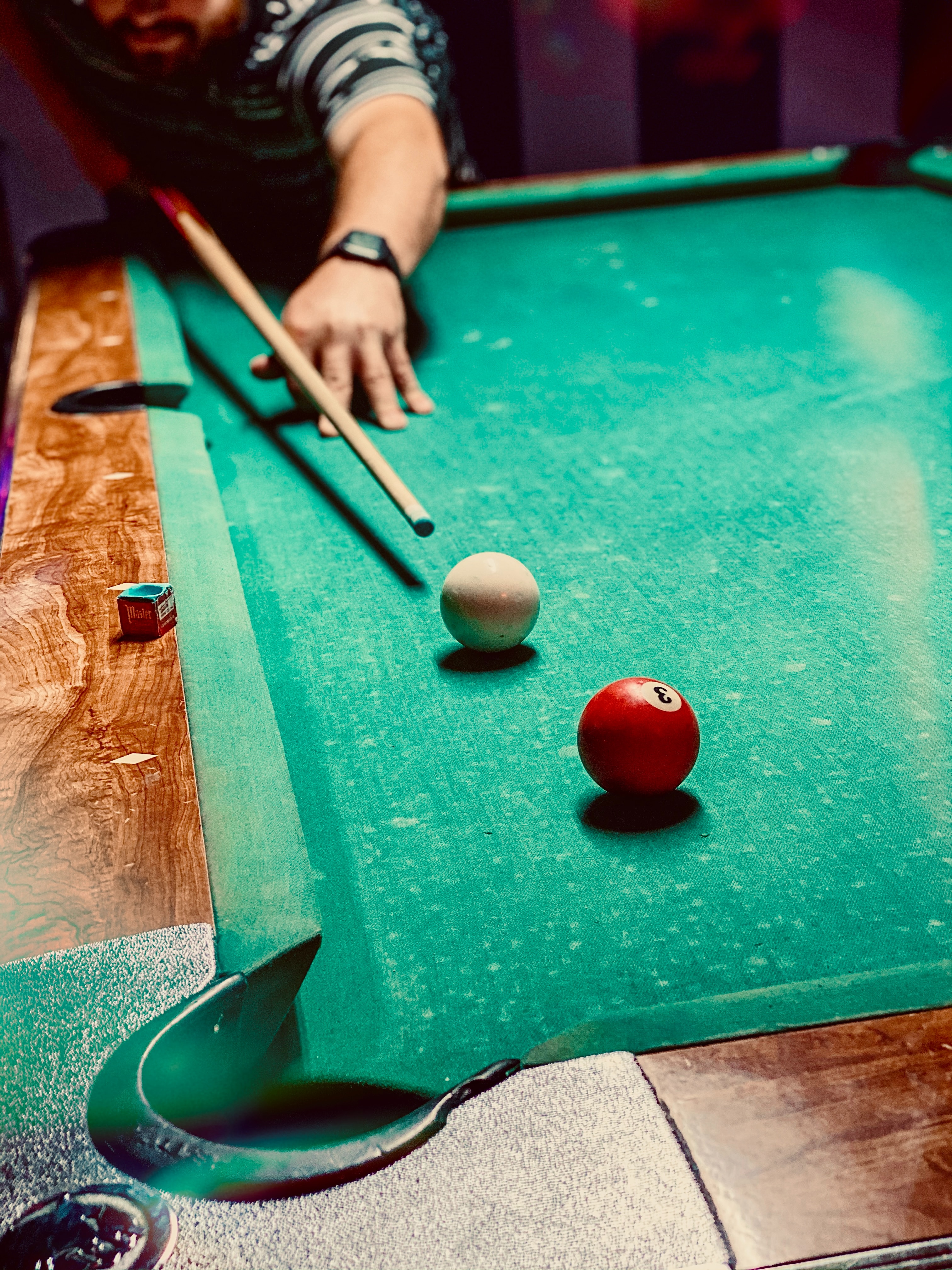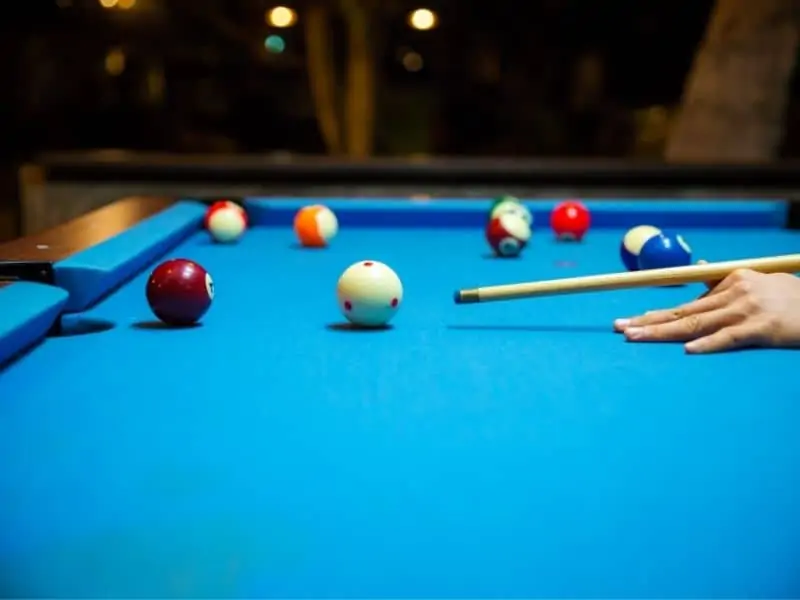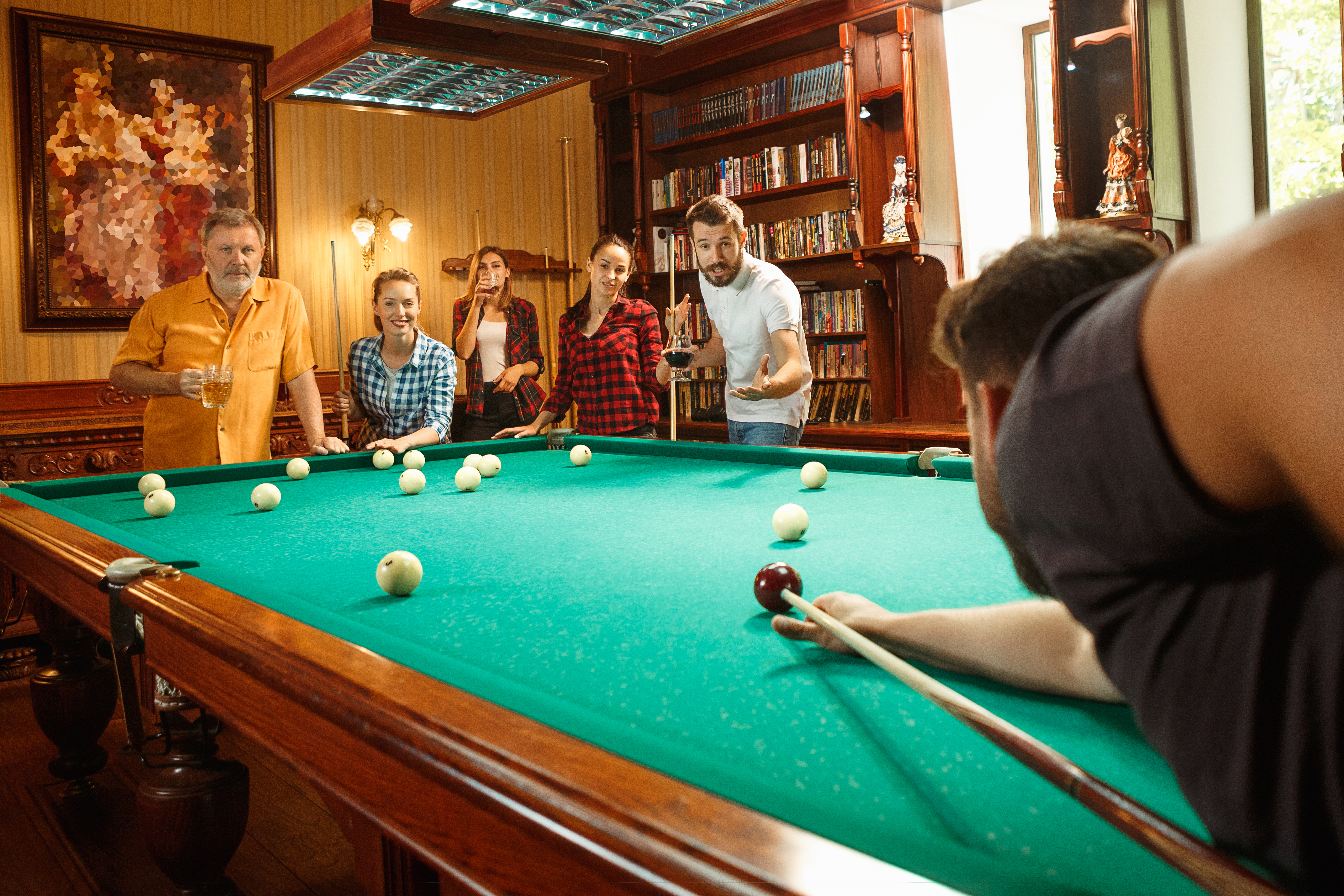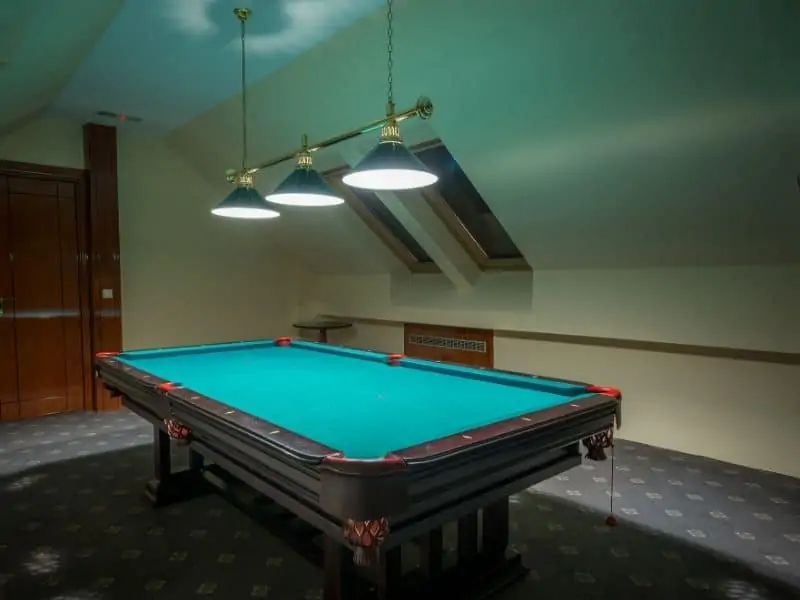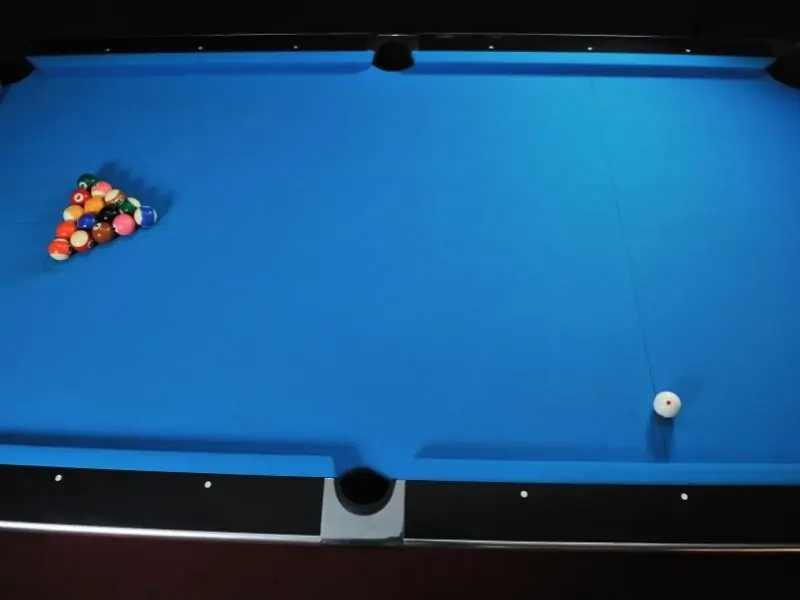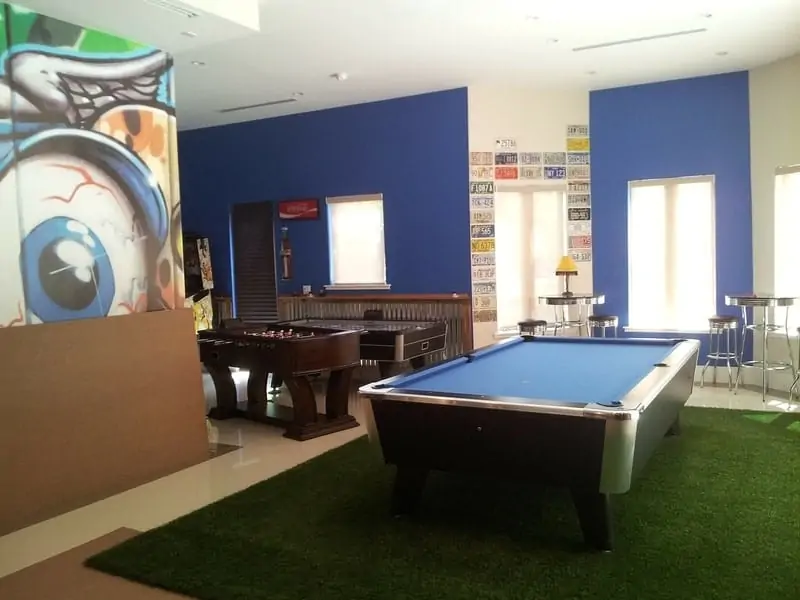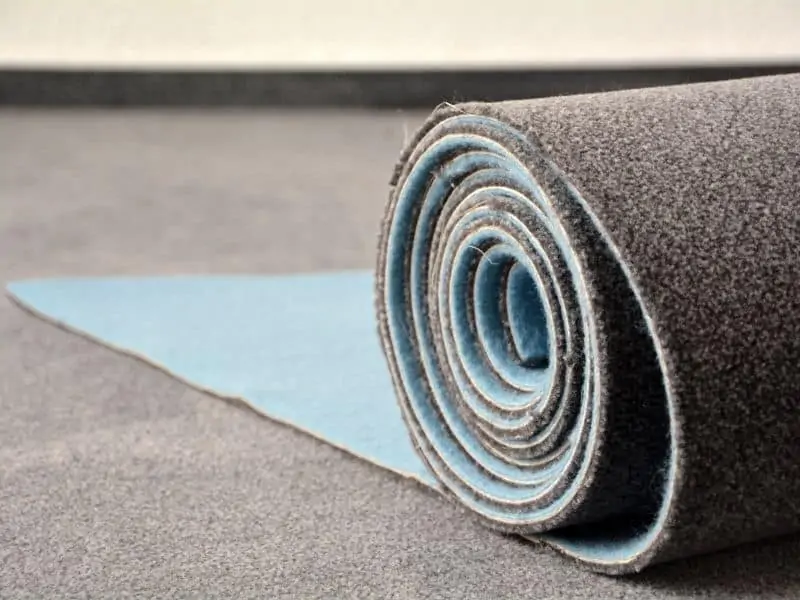Pool is a game of precision. If football is a game of inches, then pool is a game of millimeters. And you can’t be a great player if you’re only precise on half of your shots. You have to be precise on the vast majority of your shots if you’re going to get really good. So, with all the talk about tip sizes and their benefits/drawbacks, it’s not uncommon for people to ask: What size pool cue tips do the pros use?
The general consensus is that larger tips (13mm to 14mm) give you more room for error and smaller tips (11.75mm up to 12.75mm) require more accuracy to play with. If this is the case, you would think that most pro players use small tips, right? After all, they must be extremely precise if they’ve gone pro.
Well, not necessarily. In fact, there is no one size of cue tip that the pros use. You can’t really even say that_most_pros use a certain size. Pros are all over the board when it comes to tip size and even tip density. Some pros use small soft cue tips, while others use large hard ones.
Really, it comes down to their preference and their style of play. Of course, there are other factors at play here, too.
How Professional Pool Players Choose Their Cue Tips
Some pool players have tip sponsors. This means that they’ll be paid to play with a certain company’s cue tip. The size of the tip is often left up to the player, but you’d be surprised to learn that some players don’t pay that much attention to the size and brand of their cue tip.
One mark of a pro player is that they can play well with any kind and size of cue tip. Of course, some other players are very particular about the type and size of tip they play with.
I’ve even heard stories of pro players preferring to play with a soft tip that they’ve banged against a floor to compress it. They just like the way the compressed soft tips play.
Pretty wild.
But it shows you how varied pro players are when it comes to their tips. Which brings me to the main point of this section: How do professional pool players choose their tips?
By playing for hours and hours with different tips. It’s like this: The tip doesn’t make the player, the player makes the tip. This is why I recommend that you don’t buy a particular tip size or brand just because you heard a pro player uses it.
Be Wary of Pro Tip Sizes and Brands
Just because a certain pro player uses, for instance, a 13mm Kamui cue tip, doesn’t necessarily mean that it’s the best tip for you. That’s not to say that you shouldn’t try any tip you want to. You should. But, only after you’ve become comfortable with one type and size of tip should you branch out to others.
You want to have a solid foundation of skills on which you can build. So if you’re just learning to play pool, avoid jumping around from cue tip to cue tip until you feel good with one.
Sure, equipment may help you a little bit to develop your skill — you should definitely play with decent equipment — but it shouldn’t be the be-all-end-all.
Once you can walk into a pool hall, pick up a house cue, and run the table, you’re getting good. I think that should be the goal, personally. Everyone has their own goal, but once I can do that consistently, I’ll know that I’m developing into a good pool player.
But, the question still remains: what size should you start with?
What Size Cue Tip Should You Use if You’re a Beginner?
I mentioned above that you should get used to one cue size and style before branching out. But, if you’re fairly new to pool, what size tip should you start with?
I recommend a 13mm medium cue tip. This is the best size because it’s not too big and it’s not too small. It will allow you to get used to an all-around cue. You can get decent English with a 13mm tip and at the same time there’s enough surface area that will be a little forgiving as far as miscues go.
With a 13mm cue tip you can learn what kind of player you are; you’re not forced to play one style more than another, as you would with a larger or smaller tip.
Players with a little more finesse, relying on English, tend to use smaller tips. Those who shoot with a little more force and who rely on bank shots tend to use larger tips.
Once you know what kind of style you’re most comfortable with, you can build on that style and play to your strengths with different diameter tips.
Recommended Cue Tip For Beginners
There are plenty of cue tip options to choose from. I recommend a layered leather tip because they tend to last longer, giving you more for your money.
If you’re fairly new to pool and looking for a tip to learn on, I recommend these Tiger Emerald medium cue tips. They’re 13mm premium layered leather.They’re a great mid-range cue. They’re also easy to install and shape, ideal for new players who want to learn how to replace their own cue tips.
Other Articles You May Be Interested In:
Best Pool Cues for the Money: Discover the top pool cues that offer great value without breaking the bank.
Pool Table in the Garage? Here’s What You Need to Know: Understand the essential considerations for setting up a pool table in your garage.
Break Cue vs Playing Cue: What’s the Difference?: Learn the key differences between break cues and playing cues to enhance your game.
How Much Does a Good Pool Cue Cost?: Explore the factors that determine the cost of a high-quality pool cue.
Are Mini Pool Tables Worth It? A Complete Guide: Read our comprehensive guide on mini pool tables and decide if they’re the right fit for you.
